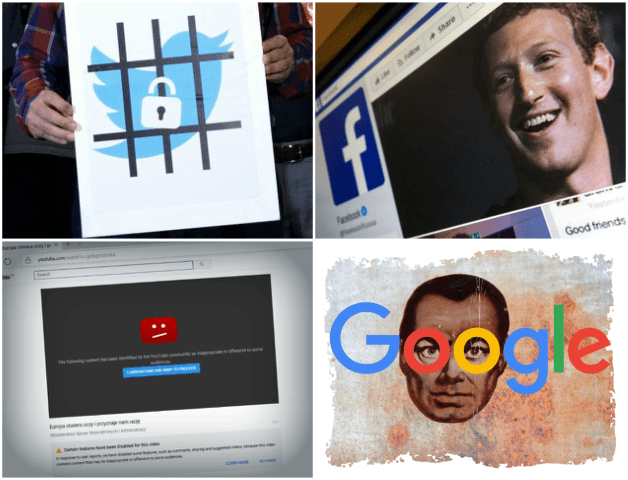Last week, millions of Californians performed their civic duty by voting in primary elections.
If these Americans did their homework in the days before the elections, they might have encountered a disturbing piece of fake news: Google search results listed the ideology of the California Republican Party as “Nazism.”
This reprehensible smear was an insult to millions of California Republicans, living and dead — especially those who, like Richard Nixon and Ronald Reagan, worked to free the world from totalitarianism during World War II and the Cold War.
But this incident was not merely an insult. It was the latest in a trend to stigmatize and silence Americans who do not believe the latest in liberal ideology.
The people most profoundly affected by this censorship campaign are conservative Republicans.
According to a survey conducted by Emily Ekins of the Cato Institute, nearly three-quarters of Republicans and 60 percent of independents said they keep some of their beliefs private because of the hostile political climate. Less than half of Democrats said the same.
The last generation of conservatives spoke of a “Silent Majority.” Today there exists a “Silenced Majority” whose views are not represented — indeed, are not welcome — in powerful institutions like the mainstream media and elite college campuses.
In recent years, the censorship campaign has spread to Silicon Valley and especially social media, where some of the most important political debates in our country are taking place.
Like the Internet itself, Silicon Valley was founded on idealistic promises rooted in freedom of information and expression.
According to the old conventional wisdom, free and open social media would strengthen democracy by giving citizens access to information and platforms to share their beliefs.
Of course, that was before citizens started using social media to express thoughts and support candidates that some Silicon Valley liberals deemed unacceptable.
Recently, left-wing activists have pressured tech companies to take a different approach to their products.
These activists want the playing field to be tilted in favor of their “politically correct” worldview so that democratic outcomes like the 2016 presidential election can never happen again.
That is how the world’s largest search engine — responsible for 90 percent of all Internet searches — ended up spreading fake news about a major political party just days before an election.
And it isn’t just one company that is affected by this problem.
During the 2016 election, Gizmodo reported that Facebook “routinely suppressed” conservative stories on its trending news section.
Similarly, Amazon banned the Alliance Defending Freedom (ADF) from its charity program. ADF is not just any organization. It is the legal organization that represented a Christian baker before the Supreme Court in Masterpiece Cakeshop v. Colorado — and won, in a decisive 7-2 verdict.
Yet Amazon, at the urging of the left-wing Southern Poverty Law Center, says ADF is a “hate group.”
Twitter, for its part, routinely censors pro-life advertisements.
My colleague Rep. Marsha Blackburn (R-TN) found this out the hard way when Twitter rejected her pro-life campaign ad for being “inflammatory.”
The social media giant reversed its decision after an outcry, but other pro-life groups have not been so lucky. Their ads are still blocked, even as abortion groups like Planned Parenthood advertise without limit.
Censorship like this undermines public discourse and trust in our institutions — and it is likely to get worse before it gets better.
Hostility to free expression in Silicon Valley led Sam Altman, the president of Y Combinator, to write that he “felt more comfortable discussing controversial ideas in Beijing than in San Francisco.”
Altman’s statement surely is an exaggeration, but it highlights the disturbing road that tech companies — and free speech itself — are traveling down.
Far-left activists are pushing Big Tech to go even further to suppress conservatives.
Gun control activists are calling on YouTube and Amazon to ban the NRA from its video streaming services.
Just last month, pro-choice activists stormed a Google developer conference, demanding that pro-life groups be erased entirely from certain Internet searches.
The social media phenomenon was supposed to be about radical curiosity, but it has descended into radical conformity.
Big Tech must not aid and abet this liberal crusade against the “Silenced Majority.” This must end, for the sake of our country.
In the coming weeks, I will join with my conservative colleagues in candid conversations with many of these companies to make it crystal clear this behavior is not only wrong but threatens the trust of institutions with so much potential for our country.
If Big Tech wants to regain the trust of the American people, it needs to live up to the principles it was founded on: freedom of speech and expression.
House Majority Leader Kevin McCarthy (R-CA) represents California’s 23rd Congressional District.

COMMENTS
Please let us know if you're having issues with commenting.